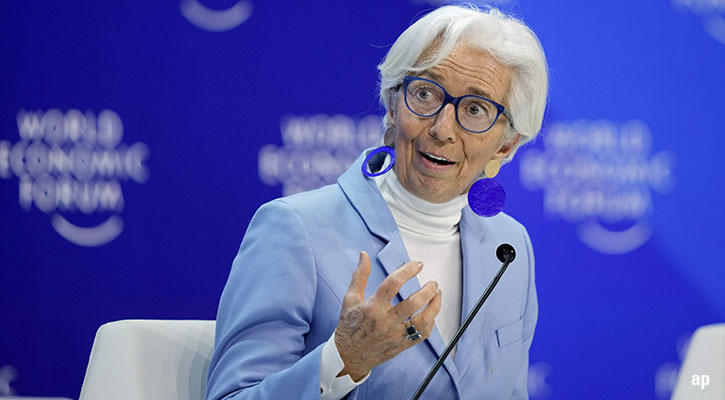
The cyclically adjusted price/earnings (CAPE) ratio has been a widely cited measure of stock market valuation for many years.
Its use has proliferated recently, because, in late 2017, the US market hit its highest CAPE ratio since the dotcom bubble in the early part of the century. In fact, it had only ever been higher twice in history and both of those occasions precipitated a stock market crash.
While a standard price/earnings divides a stock’s price over one year of its earnings, the CAPE ratio divides a stock or stock market’s price over the average of its last 10 years of earnings. This gives a fairer view of the company’s recent performance, as it lowers the chance of using a stellar year that is unlikely to be repeated to value a company, or market.
Devised by economists Robert Shiller and John Campbell, the former says that this method “forecasts about a third of the variation of long-term returns in the market”. While that “might not seem inspiring”, Shiller says his tests show it does tend to be mean reverting.
One thing to note about the CAPE ratio for stock markets is, as it is a 10-year average, 2009’s earnings – the worst year for corporate earnings for many years – is due to drop out of the calculation soon. As a result, Shiller says the CAPE ratio will naturally come down.
We used data from Shiller’s website to find out which are the cheapest markets around the world right now.
Russia
Russia is the best-performing country in 2018, with the Morningstar Russia GR Index returning 14.61% in local currency terms year-to-date. It’s up 31% in the past year. Despite this, it remains the cheapest stock market, with a CAPE ratio of just over eight times.
The market, though, is still recovering from an annus horriblis – it was the worst-performing emerging market in 2017, a year when emerging markets as a whole did very well. A year ago, in June 2017, Russia’s CAPE languished below six times. Now, it’s approaching a seven-year high.
Turkey
Both economically and politically, Turkey is probably in the worst position it has been in decades. A currency crisis, downgrades of its sovereign credit rating and inflation running at a 15-year high 15.4% make it a tough climate.
Meanwhile, President Erdogan’s recent election victory may mean it’s avoided the worst-case scenario, according to Paul Greer, manager of the Fidelity Funds Emerging Market Debt fund, but it’s not the ideal outcome and his cabinet appointments have worried markets.
As a result, its stock market has been one of the worst-performing year-to-date, losing almost a third of its value in 2018. Now, it’s trading on historically low valuations, with the CAPE at 10.44 times. Its 47% discount to emerging market peers is a decade-long high.
While some equity investors are rightly sceptical on its companies, some are still finding opportunities. Emre Akcakmak, portfolio manager at East Capital, admits he is cautions given the challenges Turkey faces.
Therefore, he says: “Our flight to safety and quality will continue, especially at times when the market offers very attractive pricing levels that dwarf companies’ intrinsic values.
“We are aware that some stocks may indeed be “falling knives” at times of extreme volatility, but we believe that some of the best investments can also be made at times like these.”
Poland
Poland has also been a poor performer in 2018, with losses of 11.6% year-to-date. However, its CAPE ratio, at 12.75 times, is the lowest it’s been since January 2017.
It’s one of the few emerging markets that have seen foreign investment inflows, according to Markus Stadlmann, chief investment officer at Lloyds Bank Private Banking. He reckons the country “could be attractive for long-term investors”.
Stadlmann says Poland has weathered the recent deceleration in eurozone growth well, with domestic demand more than offsetting weakness in its export sector.
Both industrial production and construction activity have been robust, with moderately rising inflation likely to accelerate this trend.
While he says Polish equities are slightly undervalued on the CAPE ratio, using other valuations they are much more attractively valued. However, he continues: “The key to their performance over the next 12 months will be corporate profits, which are expected to increase by 10-15% after rising 24% in 2017.”
How to Invest
We have already covered how to gain exposure to the Russian stock market extensively, most recently in our Investing Goals series. In addition to those funds mentioned there, JPMorgan Russian Securities (JRS) is a Bronze Rated investment trust that can give investors exposure.
There are few highly rated ways to gain pure exposure to both Turkey and Poland, and investing in country-specific funds come with a big risk warning. For those looking, the HSBC MSCI Turkey ETF (HTRD) and iShares MSCI Poland ETF (SPOL) are two ways.
Looking at more general funds, BlackRock Emerging Europe (BEEP) seems the best choice. The Bronze rated trust, run by Sam Vecht, has a combined 80% of its portfolio invested in the three countries.
The JPM Emerging Europe Equity fund has almost 85% of its portfolio in the three countries, but its Neutral rating make it a less compelling option.






























